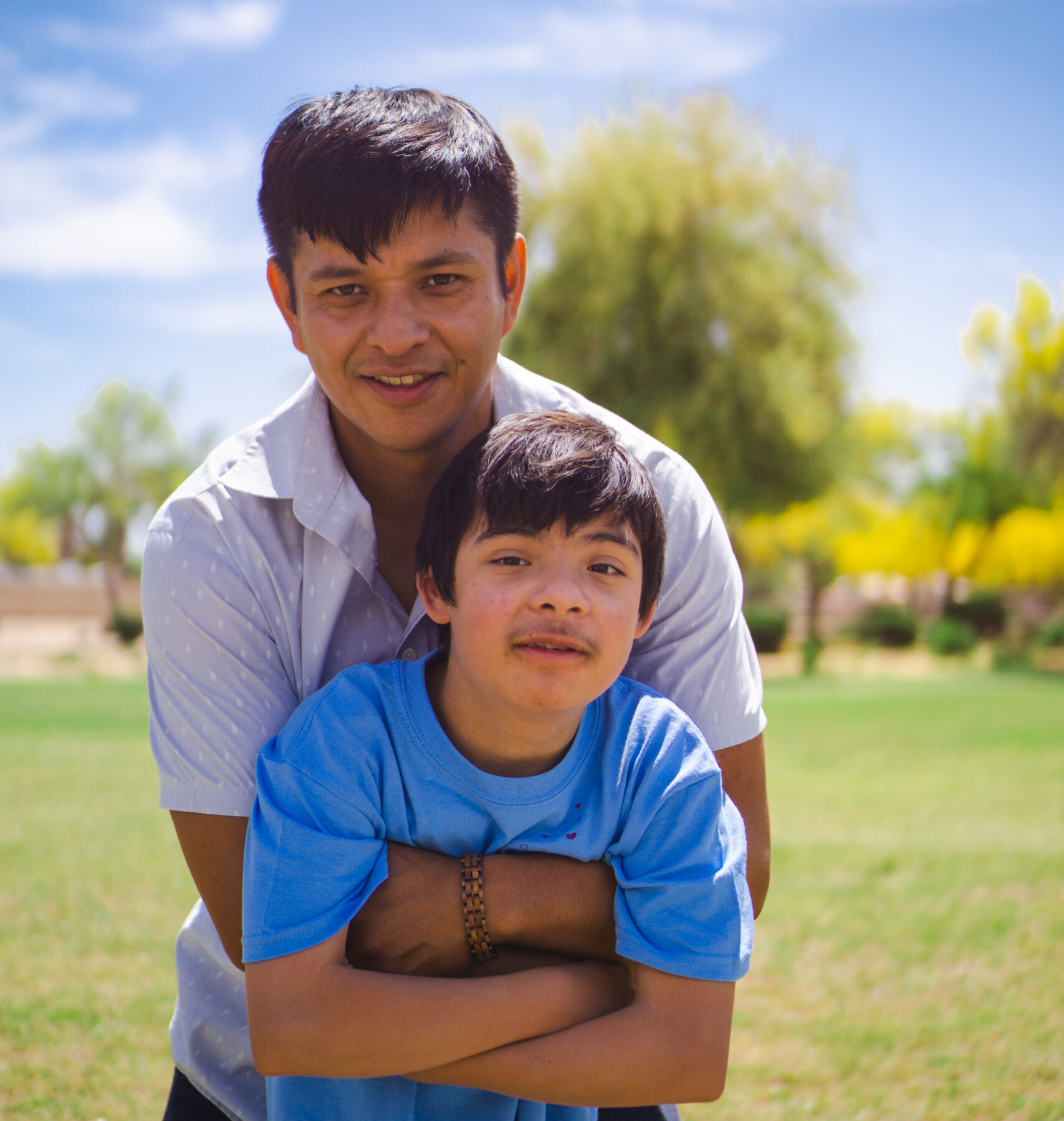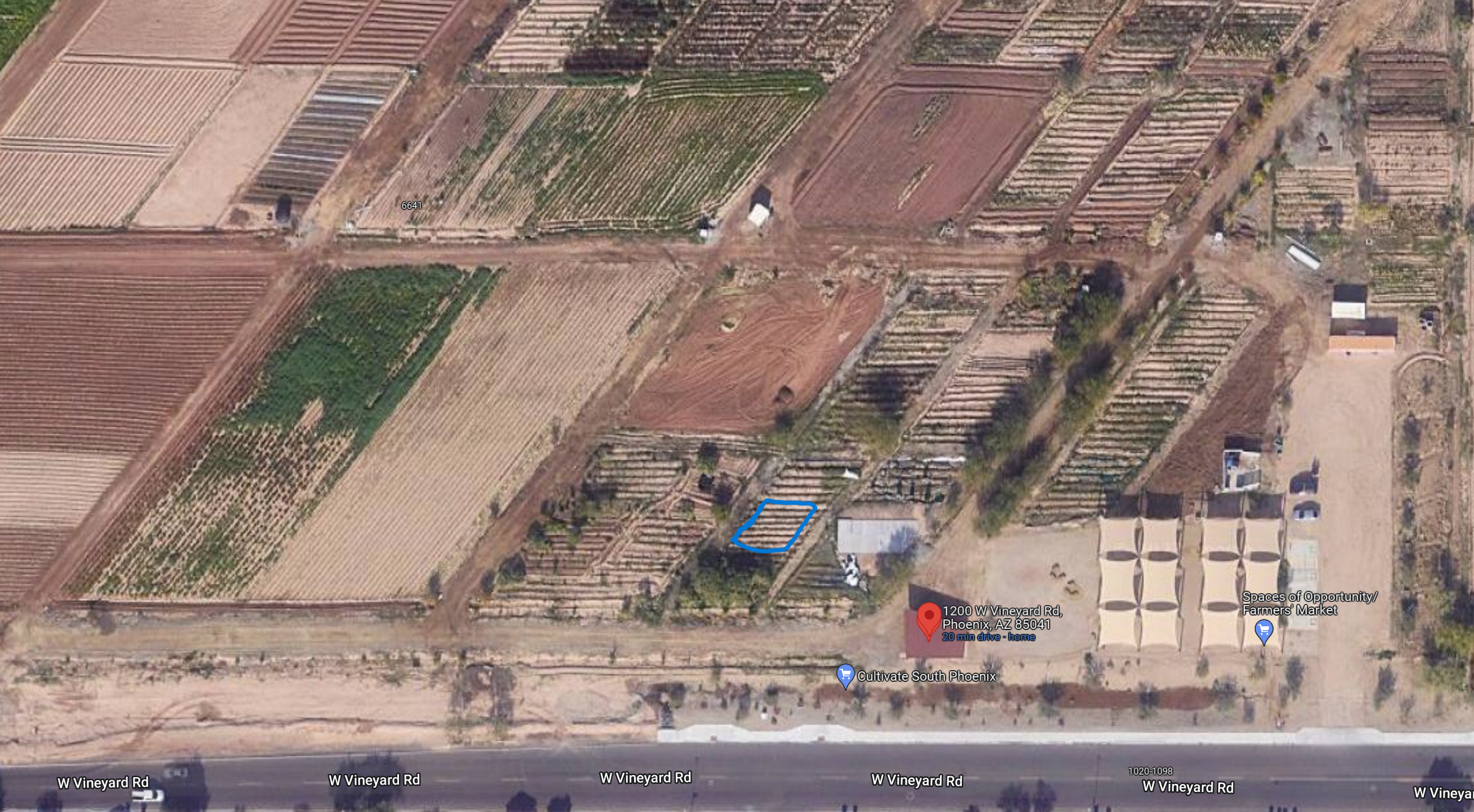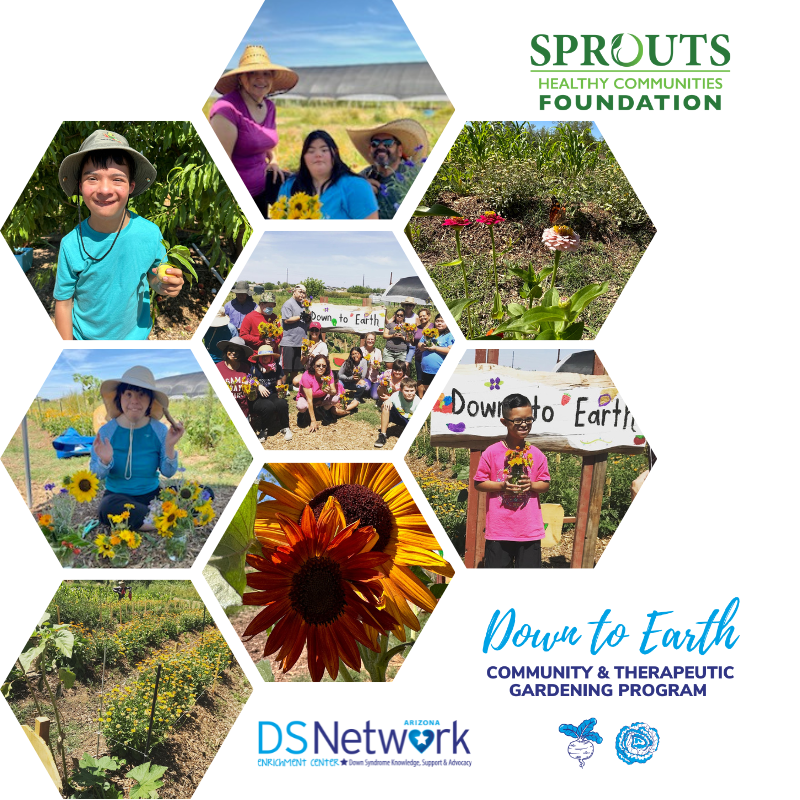Dig In
Ages 10 and Up
Thanks to Sprouts, the Down to Earth Garden will continue to thrive. Let’s Get Growing!
Sunday Mornings @ 10:00am (Time varies depending on weather)
Garden Located @ Spaces of Opportunity
1200 W Vineyard Rd, Phoenix, AZ 85041
(Near 7th Ave and Southern)
Spaces of Opportunity
Community Garden Plots
Spaces of Opportunity was born out of an idea of transforming 19 acres of land surrounded by neighborhoods in south Phoenix into a thriving community green space. Housing incubator farms, community farming plots, healing gardens, farmers markets and more, Spaces of Opportunity is helping build a strong community centered around agriculture.
DSNetwork has six irrigated garden plots in the Community Garden section open to teens and adults with Down syndrome to try their hand at farming, to be a little more self-sufficient, to learn something and connect with nature and others.
Meet the Garden Facilitators
Farmer Hector and Teresa

Hector Bonilla is an experienced organic gardener, farmer and father to Liam, a teenage boy who has Down syndrome and Autism. Hector grew up in a small rural coffee farming village in Mexico. He serves as a groundskeeper and garden teacher for a twelve acre K-12 school farm campus, has completed various bio-intensive sustainable agriculture courses and a bachelor’s degree in sustainability.
Hector welcomes volunteers and extra helping hands. Please reach out to info@dsnetworkaz.org if you are interested in learning more.

Teresa DeMasi is a speech language pathologist who has been working with kids and adults with developmental disabilities since 2007. She also has certifications in yoga and holistic nutrition. She is a native New Yorker with fond childhood memories of watching her grandfather grow a beautiful tomato garden. Teresa moved to Arizona in 2009 for a temporary job opportunity. The desert stole her heart, and this is where she discovered her passions of yoga, cooking nutritious food, hiking, and connecting in nature. She is excited to be a part of this project where she can blend her passions with her creativity to support the Down Syndrome community, knowing her grandpa would be proud of her:)

Benefits of Gardening
Community & Therapy
For children and adults with Down syndrome, there are many particular benefits to gardening and working with plants and being in nature. According to the American Horticultural Therapy Association, horticultural therapy is widely used in a community setting with positive results for a broad range of mental health, physical, social, emotional and sensory benefits.
- Learning about plants and gardening teaches people about the earth and life cycles, how to grow food, how to appreciate healthy foods and change nutrition habits, environmental awareness, hands-on life skills experience, business skills (farmers’ markets) and much more…
- Outdoor learning and working in the garden helps to improve memory, cognitive abilities, task initiation, language skills, and socialization.
- Gardening works muscles through bending, pulling, stretching, and some light lifting help strengthen muscles and improve coordination, gross and fine motor skills, balance, and endurance.
- Gardening with a small group offers a safe place to engage with others and make friends. A community that focuses on plant growth together creates natural opportunities to connect and form relationships.
- Over some time, while working in a garden, people develop patience and the ability to delay gratification.
- Gardening provides a sense of purpose, confidence, and achievement of watching their seeds grow into plants.
- Connecting with nature can reduce tension and improve moods by taking their focus away from stressors. Focusing on the fresh air, the feeling of sunlight, and the scenery of plants can have a relaxing, therapeutic effect, allowing a break from negative stimuli and screen time.
- Some people may have sensory reactions to some elements of the outdoors, but gardening can help them to explore their senses in a positive way: seeing a variety of plants, touching soil, or smelling flowers. People with sensory sensitivities may benefit from a therapeutic sensory garden to facilitate interaction with the soothing elements of nature. With repeated exposure and guidance, their negative responses may decrease and give way to positive outdoor experiences.
With so many benefits, gardening truly has the power to transform, regardless of age or ability.

